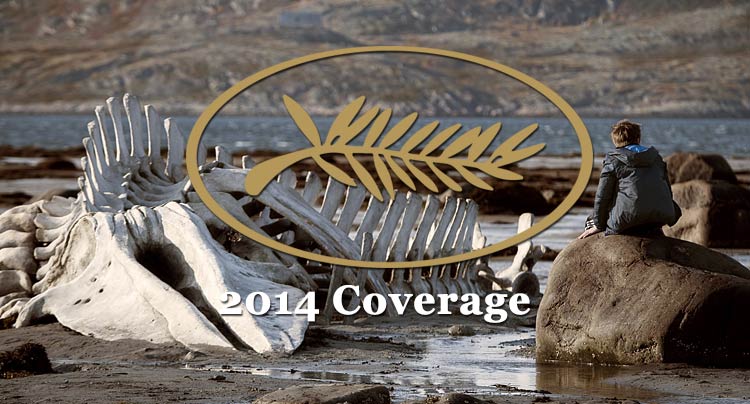Cannes 2014: Leviathan

The corruption pulsating under Leviathan’s surface is so dense, you’d need an especially sharp scalpel to puncture it. Andrey Zvyagintsev manages to do just that with one of the festival’s greatest films. Though it screened in the twilight days of the festival calendar, no amount of fatigue could prevent the reach of Leviathan’s subtle grip to shake you at the core. This is mostly attributed to the masterfully handled direction of scenes, a cinematography that’s never showy yet essentially influential in key scenes, penetrating performances by every single actor, and a thematic depth reached by an allegorical fable that’s worthy of being placed among the very best of Russia’s intimidating artistic pantheon.
Kolya (Aleksey Serebryakov) is fighting to keep his property away from state’s hands, and commissions his old army buddy Dimitri (Vladimir Vdovitchenkov) from Moscow to be his lawyer. Dimitri says he has a big file of dirt on the town’s mayor Vadim (Roman Madianov) and all he needs to do is tug him gently by the balls to get him to back away. Parallel to this, Kolya’s personal life is in a delicate state itself; with his young son Roma (Sergei Pokhodaev) not adjusting very well to Lilya (Elena Liadova), Kolya’s young wife. Kolya’s livelihood begins to slowly choke in this modern allegorical retelling of the Leviathan passage in the Book of Job.
Comparisons will be made to Winter Sleep, most fervently by those who are intent on proving Winter Sleep’s lack of engagement, but I’d argue both films succeed in engaging through different means. Whereas Winter Sleep pulls the audience (or most of it one hopes) through conversation, and lets the scenery breathe in the contemplative pauses, in Leviathan it’s the meticulous mise-en-scene that speaks the loudest. The dried up and ruinous exteriors overlooked by the mountains like guards watching over precious relics in an abandoned museum, and interiors breathing with a life you only become aware of once it’s too late to save your sinking heart. The camera’s movement glides gently, pulls in for a kiss or follows a character as she washes her hands in the lake, and through this delicate attention establishes a penetrating familiarity, completely taking you off guard. The Machiavellian narrative, aided by musical bookends of ostentation operatic sounds only Phillip Glass can conjure, and the sense of entrapment inflicted on everyone in the story, but most poignantly on Kolya whose drowning sorrows can’t find the bottom of all the vodka bottles in Russia, help to elevate the film in constant incline.
Andrei Zvyagintsev has thoroughly understood, and mastered, the subtle power of the moving image. With his magnificent debut The Return and the masterpiece of intimate decision-making in Elena – there’s no denying that Russian cinema has found itself again through this bold craftsman, whose scalpel has never been sharper than it is here. His knack of elevating the experience (there’s that word again) to a league of its own, standing just as high as Ceylan’s didactic tête-à-tête opus but in a different mantelpiece, has confirmed him one of today’s most refined filmmakers. Soaked in spirituality, vodka, and an undercurrent of violence, Leviathan is a film worthy of study, and one can only hope that its two principle actors (Serebryakov and Madianov) or, better still, its director, will walk away awarded for the intoxicating artistry displayed by, and through, Leviathan.
